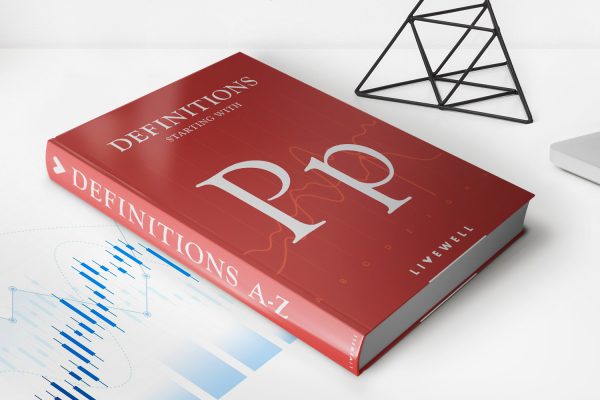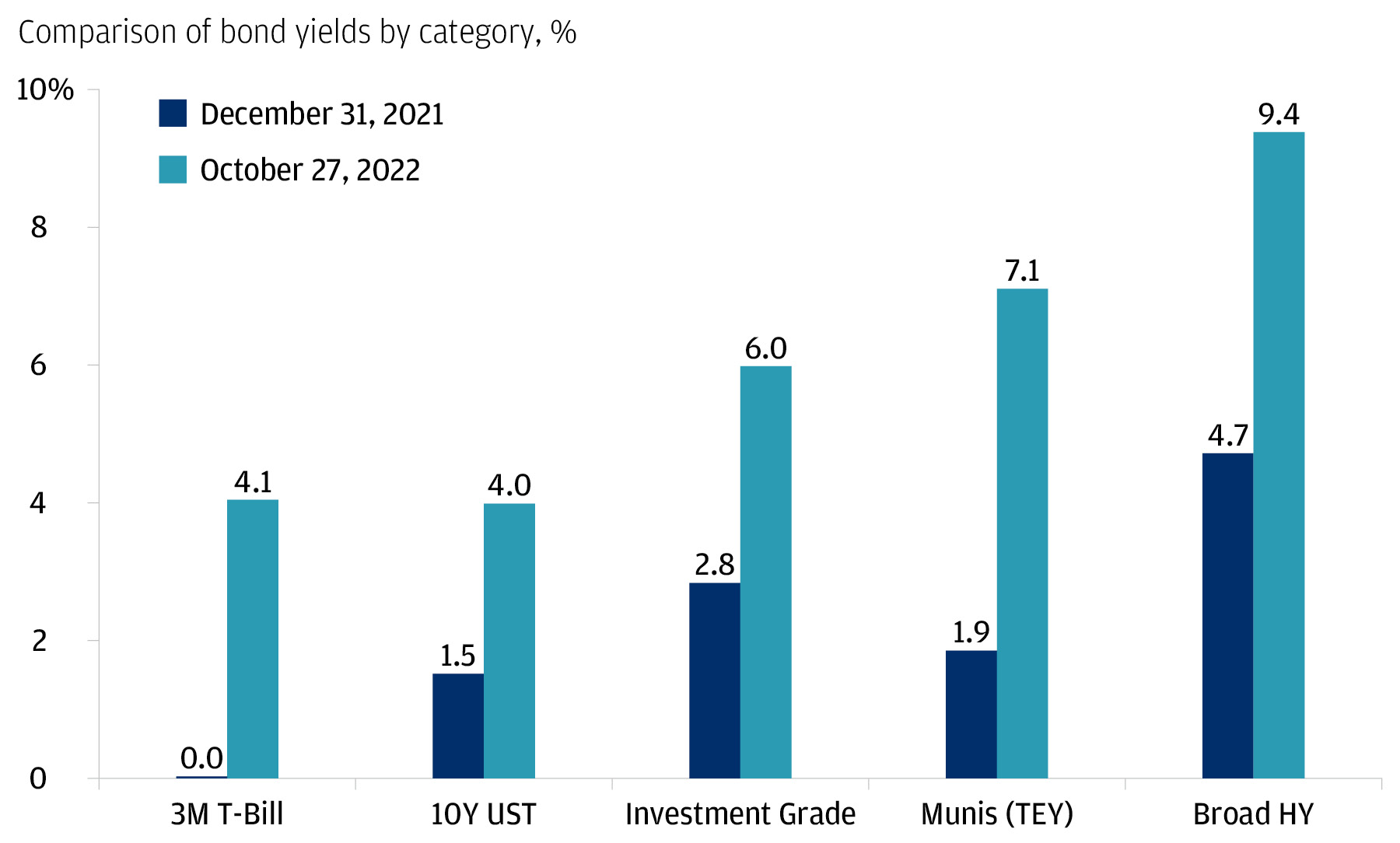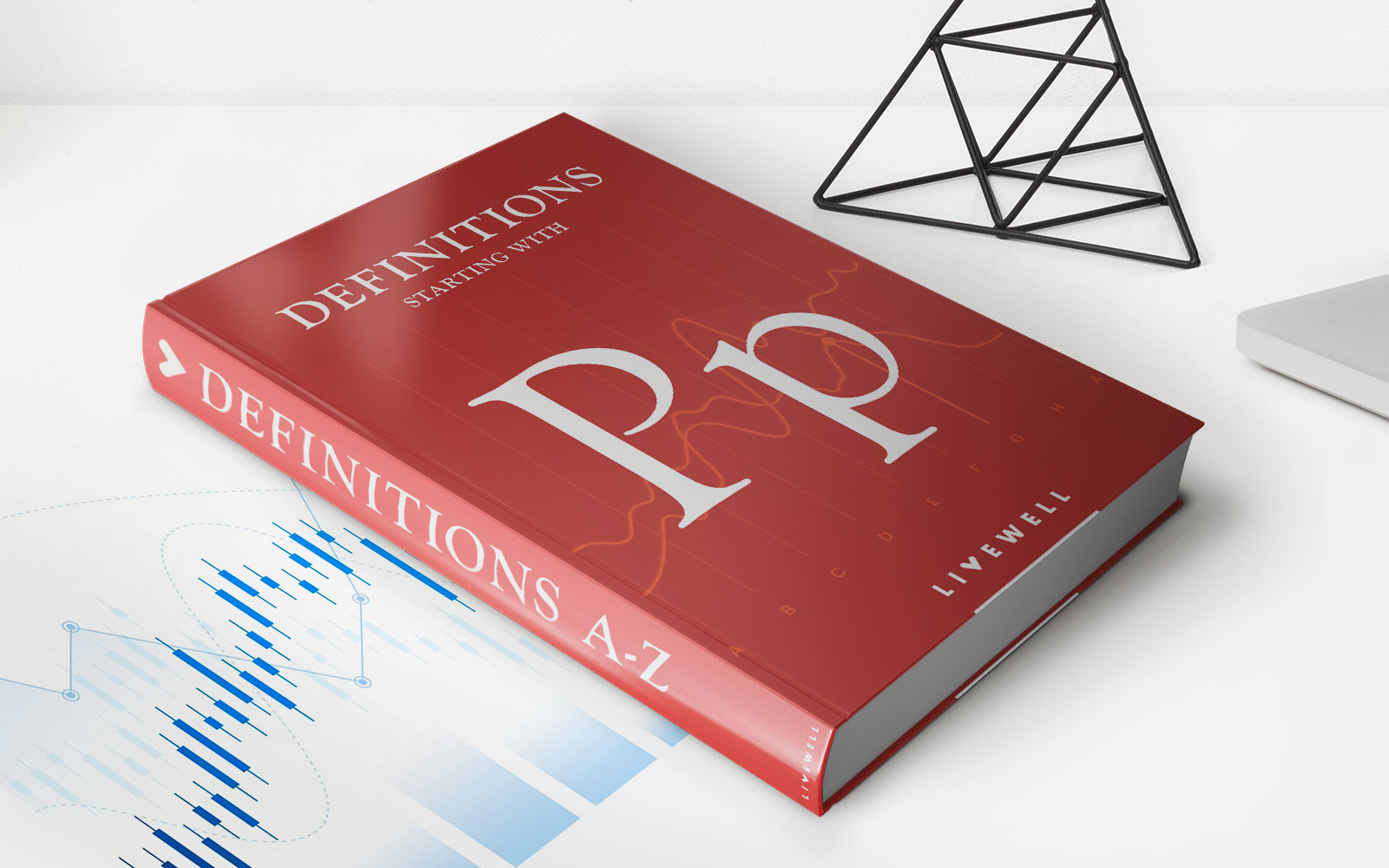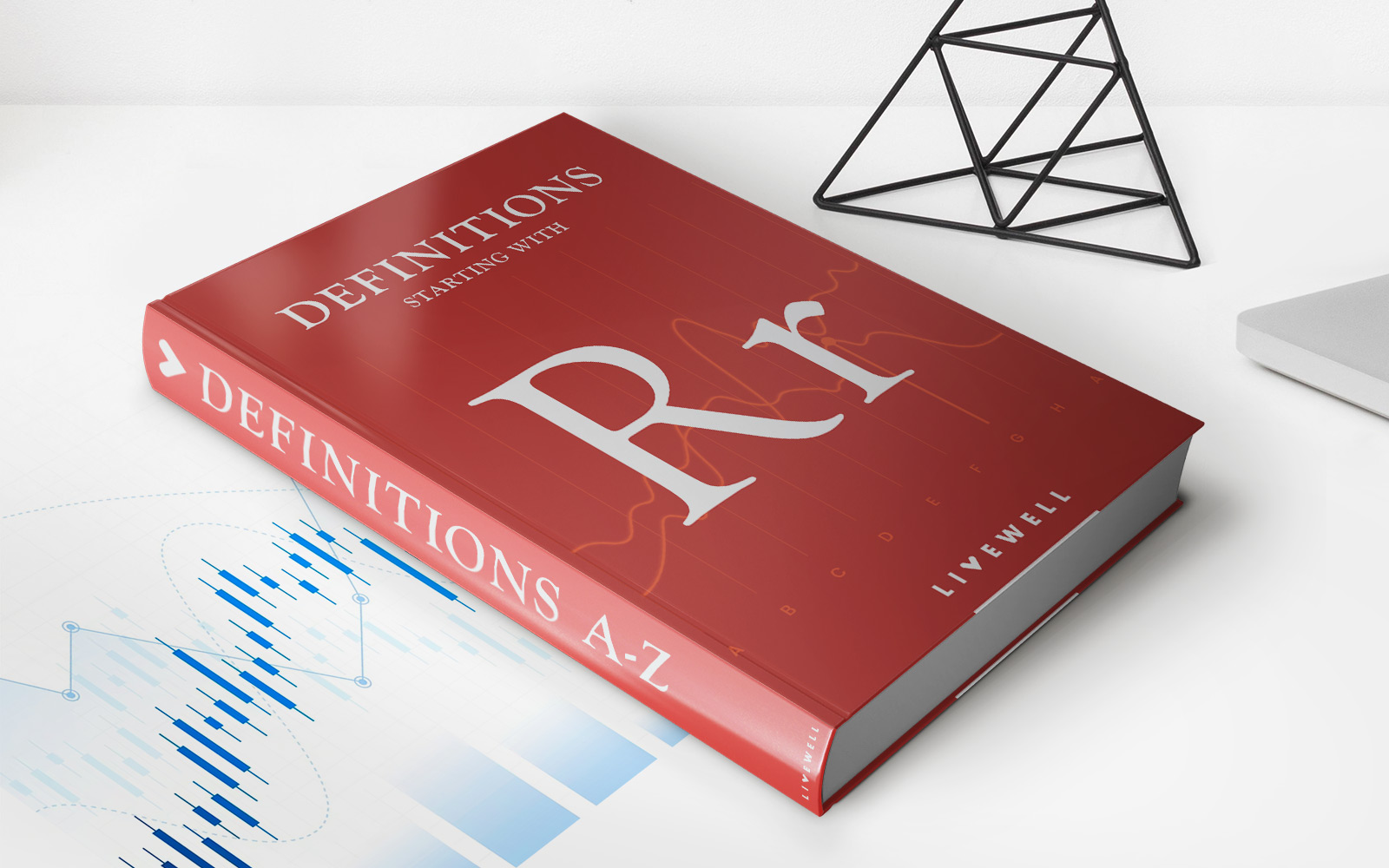Home>Finance>Why Do Probate Courts Require Guardianship Bonds


Finance
Why Do Probate Courts Require Guardianship Bonds
Published: October 12, 2023
Discover why probate courts require guardianship bonds and the importance of finance in this process.
(Many of the links in this article redirect to a specific reviewed product. Your purchase of these products through affiliate links helps to generate commission for LiveWell, at no extra cost. Learn more)
Table of Contents
- Introduction
- What are Probate Courts?
- What is Guardianship?
- Understanding Guardianship Bonds
- The Importance of Guardianship Bonds
- Reasons Probate Courts Require Guardianship Bonds
- Legal Requirements for Guardianship Bonds
- Benefits and Protections of Guardianship Bonds
- Challenges and Risks of Guardianship Bonds
- Alternatives to Guardianship Bonds
- Conclusion
Introduction
Welcome to our comprehensive guide on why probate courts require guardianship bonds. If you have ever wondered about the purpose and significance of guardianship bonds within the probate court system, you have come to the right place. In this article, we will delve into the intricacies of probate courts, understand what guardianship entails, and explore the reasons behind the requirement of guardianship bonds.
Probate courts, also known as surrogate courts or orphan’s courts, are specialized courts that handle matters pertaining to the administration of estates, wills, and guardianship of minors or incapacitated adults. These courts play a crucial role in ensuring the proper management of assets, the protection of vulnerable individuals, and the resolution of legal disputes related to family matters.
Guardianship, in its simplest form, is a legal relationship where an individual or entity is appointed by the court to be responsible for the well-being and decision-making of another individual who is unable to make their own decisions due to age, disability, or incapacitation. The appointed guardian is entrusted with the duty to act in the best interest of the incapacitated person.
Now, let’s explore the concept of guardianship bonds and their significance within the probate court system. A guardianship bond, also known as a fiduciary bond or a surety bond, is a type of insurance policy that provides financial protection for the incapacitated individual whom the guardian is responsible for. This bond acts as a safeguard to ensure that the guardian will faithfully perform their duties and handle the financial affairs of the incapacitated person responsibly.
Probate courts require guardianship bonds for several reasons, all of which aim to protect the interests of the incapacitated individuals and provide a level of assurance to the court and other interested parties. These bonds serve as a form of legal protection and financial guarantee, mitigating the risks of mismanagement, fraud, and negligence on the part of the guardian.
In the following sections, we will explore the legal requirements for guardianship bonds, delve into the benefits and protections they offer, and also discuss some of the challenges and risks associated with these bonds. Additionally, we will touch upon the alternatives to guardianship bonds that can be considered in some cases.
So, let’s continue our journey into the world of probate courts and guardianship bonds, gaining a deeper understanding of their importance and the reasons behind their requirement.
What are Probate Courts?
Probate courts, also known as surrogate courts or orphan’s courts, are specialized courts that play a vital role in the legal system. These courts handle a variety of matters related to the administration of estates, wills, and guardianship of minors or incapacitated adults.
The primary function of probate courts is to oversee the distribution of a deceased person’s assets according to their will or in line with the laws of intestacy if there is no will present. This process is known as probate, and it ensures that the wishes of the deceased are respected, debts are settled, and property is distributed appropriately.
In addition to the administration of estates, probate courts also have the authority to appoint guardians for minors or individuals who are unable to make decisions for themselves due to disability or incapacitation. This process is referred to as guardianship, and it allows for the protection and care of those who are unable to care for themselves.
Probate court proceedings involve a variety of legal matters, such as validating wills, interpreting the provisions of a will, resolving disputes among beneficiaries, approving the appointment of executors or administrators, and overseeing the distribution of assets. These courts provide a structured and formal process to ensure that the wishes of the deceased are respected, and the legal rights and interests of all parties involved are protected.
Probate courts also play a crucial role in protecting the interests of minors and incapacitated individuals. In cases where a guardian is appointed, the court oversees the selection and appointment of a responsible individual or institution to act as a guardian and make decisions on behalf of the ward. The probate court’s involvement ensures that the guardian acts in the best interest of the ward and fulfills their fiduciary duties.
It is important to note that the specific functions and jurisdiction of probate courts may vary between jurisdictions. Some states have separate probate courts dedicated solely to handling probate and guardianship matters, while others incorporate these functions into general civil courts or family courts. Regardless of the structure, the primary objective of probate courts remains consistent – to oversee the proper administration of estates and the protection of vulnerable individuals.
In the next section, we will explore the concept of guardianship in more detail, understanding the roles and responsibilities that come with being a guardian and the reasons why guardianship bonds are required within the probate court system.
What is Guardianship?
Guardianship is a legal relationship where an individual or entity is appointed by the court to make decisions and care for another person who is unable to make decisions for themselves due to age, disability, or incapacitation. The person who requires a guardian is known as the ward, and the appointed guardian assumes the responsibility of advocating for the ward’s best interests.
Guardianship can be established for various reasons, and the scope of the guardian’s authority can vary depending on the specific circumstances and the court’s orders. Some common situations that may require guardianship include:
- Minors: If a child’s parents are unable to provide adequate care or make decisions on their behalf, the court may appoint a guardian to ensure the child’s well-being.
- Incapacitated Adults: When an adult lacks the mental capacity to make decisions or manage their own affairs, a guardian may be appointed to make decisions related to healthcare, finances, and overall welfare.
- Persons with Disabilities: Individuals with intellectual, developmental, or physical disabilities may require a guardian to assist with decision-making and ensure their rights and interests are protected.
Being a guardian comes with numerous responsibilities, including making decisions related to medical treatment, education, housing, and financial matters. The extent of the guardian’s authority is typically determined by the court and tailored to meet the specific needs of the ward.
To ensure that the guardian fulfills their duties faithfully, probate courts often require the guardian to obtain a guardianship bond, also referred to as a fiduciary bond or a surety bond.
In the next section, we will dive deeper into the concept of guardianship bonds, exploring their purpose, importance, and the reasons why probate courts require them to be in place when appointing a guardian.
Understanding Guardianship Bonds
A guardianship bond, also known as a fiduciary bond or a surety bond, is a type of insurance policy that provides financial protection for the ward under the guardianship. It serves as a guarantee that the guardian will carry out their duties responsibly and in the best interest of the ward.
When a guardianship bond is required, the guardian must obtain the bond from a surety company. The bond acts as a contract between the guardian, the surety company, and the court. It ensures that the surety company will compensate the ward if the guardian fails to fulfill their obligations or mismanages the ward’s assets.
Guardianship bonds provide several critical functions in the probate court system:
- Financial Protection: The bond offers financial security to the ward by acting as a safeguard against any potential mismanagement or misuse of the ward’s assets. If the guardian breaches their fiduciary duty or engages in improper conduct, the bond ensures that the ward’s financial interests are protected and that they can be compensated for any losses incurred.
- Legal Compliance: By requiring guardianship bonds, probate courts ensure that guardians adhere to the laws and regulations governing their role. The bond serves as a form of oversight, emphasizing the importance of responsible, honest, and ethical conduct in carrying out the duties of a guardian.
- Additional Layer of Accountability: Guardianship bonds contribute to the accountability of the guardian by imposing a financial burden if they act negligently or fail to fulfill their obligations. This financial liability helps deter potential misconduct and encourages guardians to act in the best interest of the ward at all times.
The cost of obtaining a guardianship bond varies based on factors such as the value of the ward’s assets, the jurisdiction, and the risk associated with the specific case. The guardian is typically responsible for paying the premiums associated with the bond.
It’s important to note that the specific requirements and regulations surrounding guardianship bonds may vary by jurisdiction. Probate courts may have specific guidelines regarding the minimum bond amount, the bonding company’s qualifications, and the process for obtaining and renewing the bond.
In the next section, we will explore the importance of guardianship bonds from the perspective of probate courts and why they require these bonds to be in place for guardianship appointments.
The Importance of Guardianship Bonds
Guardianship bonds play a crucial role in the probate court system, providing essential protections and ensuring the proper administration of guardianship responsibilities. The importance of these bonds cannot be overstated, as they serve multiple key purposes that benefit the ward, the court, and other interested parties.
One of the primary reasons for the importance of guardianship bonds is the financial protection they afford to the ward. The bond acts as a safety net, safeguarding the assets and financial interests of the incapacitated individual under the guardian’s care. In the unfortunate event of mismanagement or negligence by the guardian, the bond can provide compensation to the ward for any financial losses incurred. This protection is vital, as it helps ensure that the ward’s resources are managed responsibly and in their best interest.
Furthermore, guardianship bonds contribute to the accountability and oversight of guardianship arrangements. By requiring guardians to obtain a bond, probate courts establish an additional layer of assurance that the appointed guardian will fulfill their duties faithfully and with the utmost care. The bond acts as a mechanism to promote responsible conduct, as the financial liability associated with the bond serves as a deterrent to potential misconduct or mismanagement by the guardian.
From the court’s perspective, guardianship bonds are an essential tool in mitigating the risks associated with appointing a guardian. The bond acts as a form of insurance, providing reassurance to the court that the ward’s interests will be protected even if the guardian fails to fulfill their obligations. This protects the court from potential liability and ensures that the ward’s well-being and financial affairs are adequately protected.
Moreover, guardianship bonds serve to uphold the integrity of the probate court system by promoting compliance with legal requirements. By requiring guardians to obtain a bond, the court reinforces the importance of adhering to the laws and regulations governing guardianship. This furthers the court’s commitment to ensuring the highest standards of guardianship and reinforces the public’s confidence in the probate court’s role in protecting vulnerable individuals.
Overall, the importance of guardianship bonds lies in their ability to provide financial protection, promote accountability, and maintain the integrity of the probate court system. These bonds contribute to the overall well-being and security of incapacitated individuals, offering peace of mind to the ward, the court, and other interested parties.
In the next section, we will explore the specific reasons why probate courts require guardianship bonds and the legal requirements associated with these bonds.
Reasons Probate Courts Require Guardianship Bonds
Probate courts require guardianship bonds for several important reasons. These reasons revolve around the need to protect the ward, ensure the guardian’s accountability, and maintain the integrity of the probate court system. Let’s explore some of the main reasons why guardianship bonds are a requirement within the probate court process:
- Financial Protection for the Ward: One of the primary reasons probate courts require guardianship bonds is to provide financial protection for the ward. The bond acts as a form of insurance, guaranteeing that if the guardian mismanages the ward’s assets or engages in fraudulent activities, the bond will compensate the ward for any resulting financial losses. This ensures that the ward’s resources are safeguarded and used solely for their benefit.
- Accountability of the Guardian: Guardianship bonds play a crucial role in holding guardians accountable for their actions. By requiring a bond, probate courts establish an additional layer of oversight and deterrence, as the guardian has a financial liability associated with the bond. This accountability encourages guardians to act responsibly and in the best interests of the ward, knowing that any misconduct may result in financial consequences.
- Protection against Negligence or Misconduct: The requirement of a guardianship bond protects the ward from potential negligence or misconduct on the part of the guardian. If the guardian fails to fulfill their duties or causes harm to the ward through their actions or inactions, the bond provides a means to seek compensation for any resulting damages. This ensures that the ward’s well-being and interests are protected, even if the guardian fails to meet their obligations.
- Court Oversight and Compliance: Guardianship bonds contribute to the proper functioning and oversight of the probate court system. By requiring a bond, the court can diligently monitor the actions and conduct of the guardian, ensuring compliance with legal requirements and standards. This oversight helps maintain the integrity of the probate court process and reinforces the court’s commitment to protecting vulnerable individuals under guardianship.
- Reassurance to Interested Parties: Guardianship bonds provide reassurance to interested parties such as family members, beneficiaries, and creditors. These parties can have peace of mind knowing that there is a financial safety net in place to protect the ward’s assets. This gives them confidence that the guardian will act responsibly and fulfill their obligations, reducing the potential for disputes or concerns regarding the management of the ward’s affairs.
It’s important to note that the specific requirements for guardianship bonds may vary by jurisdiction. Each probate court sets its own guidelines regarding the minimum bond amount, the bonding company’s qualifications, and any additional requirements for obtaining and maintaining the bond.
In the next section, we will delve into the legal requirements associated with guardianship bonds, providing a deeper understanding of the process involved in obtaining and maintaining these bonds.
Legal Requirements for Guardianship Bonds
The legal requirements for guardianship bonds can vary from jurisdiction to jurisdiction. Probate courts establish guidelines and regulations to ensure the proper administration of guardianships and the protection of the ward’s interests. Let’s explore some common legal requirements associated with guardianship bonds:
- Bond Amount: Probate courts typically set a minimum bond amount that the guardian must obtain. The bond amount is determined based on various factors, including the value of the ward’s assets and the potential risks associated with the specific case. The purpose of the bond amount is to provide adequate financial coverage to protect the ward’s assets and ensure that the bond can fulfill its intended function if needed.
- Selection of Bonding Company: Probate courts may specify the qualifications and requirements for bonding companies that can issue guardianship bonds. These qualifications may include being licensed and regulated by the state insurance department and meeting certain financial stability criteria. The bonding company acts as the guarantor of the bond and must have the capacity to fulfill its obligations under the bond contract.
- Bond Renewal: Guardianship bonds are typically required for the entire duration of the guardianship. However, the bond may need to be renewed periodically, depending on the jurisdiction’s regulations. The renewal process ensures that the bond remains in effect and provides continuous protection for the ward’s assets throughout the guardianship period.
- Reporting and Record-Keeping: Guardians may be required to provide periodic reports to the court, detailing their activities and the management of the ward’s assets. These reports serve as a means of accountability, allowing the court to monitor the guardian’s actions and ensure compliance with their fiduciary responsibilities. Additionally, guardians are often required to keep detailed records of financial transactions and decisions made on behalf of the ward.
- Termination and Discharge: The guardianship bond may be discharged or terminated under certain circumstances, such as when the guardianship is no longer necessary or when the ward passes away. The specific procedures for bond termination may vary, but generally, the court will require documentation and a formal request from the guardian to initiate the discharge process.
It’s essential for guardians to familiarize themselves with the specific legal requirements for guardianship bonds in their jurisdiction. Working closely with an attorney experienced in probate matters can help ensure compliance with the necessary regulations and streamline the bond process.
Meeting the legal requirements for guardianship bonds is critical to the appointment and continued function of a guardian. By fulfilling these requirements, guardians can demonstrate their commitment to upholding their fiduciary duties and acting in the best interest of the ward.
In the next section, we will explore the benefits and protections offered by guardianship bonds, both for the ward and the guardian.
Benefits and Protections of Guardianship Bonds
Guardianship bonds provide several important benefits and protections for both the ward and the guardian involved in the guardianship process. These bonds serve as a crucial safeguard, offering peace of mind and ensuring the proper administration of the ward’s affairs. Let’s explore some of the key benefits and protections offered by guardianship bonds:
- Financial Protection for the Ward: One of the primary benefits of a guardianship bond is the financial protection it provides for the ward. The bond acts as an insurance policy, guaranteeing that if the guardian mismanages the ward’s assets or engages in fraudulent activities, the bond can compensate the ward for any resulting financial losses. This protection ensures that the ward’s resources are safeguarded and used solely for their benefit.
- Accountability and Oversight: Guardianship bonds promote accountability and oversight of the guardian’s actions. The bond creates a financial incentive for the guardian to act responsibly and fulfill their duties faithfully, as any misconduct can result in a claim being filed against the bond. Probate courts can monitor the guardian’s activities, ensuring that they comply with legal requirements and act in the best interest of the ward.
- Protection against Mismanagement and Negligence: Guardianship bonds offer protection to the ward in cases of mismanagement or negligence by the guardian. If the guardian fails to fulfill their fiduciary duties or causes harm to the ward through their actions or inactions, the bond can provide a means for the ward to seek compensation for any resulting damages. This protection ensures that the ward’s well-being and interests are safeguarded, even if the guardian fails to fulfill their obligations.
- Reassurance for Interested Parties: Guardianship bonds provide reassurance to interested parties such as family members, beneficiaries, and creditors. These parties can have confidence that there is a financial safety net in place to protect the ward’s assets. This reassurance reduces the potential for disputes or concerns regarding the management of the ward’s affairs and contributes to a sense of trust and transparency in the guardianship process.
- Professionalism and Trust: The presence of a guardianship bond demonstrates professionalism and accountability on the part of the guardian. It signifies a commitment to fulfilling fiduciary duties and acting in the best interest of the ward. The bond helps establish trust between the guardian, the ward, and the probate court, enhancing the overall integrity of the guardianship arrangement.
Guardianship bonds offer significant benefits and protections for both the ward and the guardian, promoting responsible conduct, financial security, and overall well-being. By ensuring the proper administration of the ward’s affairs, these bonds contribute to a more robust and effective guardianship process.
In the next section, we will explore some of the challenges and risks associated with guardianship bonds, as well as alternatives that may be considered in certain cases.
Challenges and Risks of Guardianship Bonds
While guardianship bonds offer significant benefits and protections, there are some challenges and risks associated with them. It is important to be aware of these potential drawbacks to fully understand the implications of obtaining a guardianship bond. Here are some of the challenges and risks:
- Cost: One of the primary challenges with guardianship bonds is the cost involved. The premiums for these bonds can vary depending on factors such as the value of the ward’s assets and the specific jurisdiction’s requirements. The cost can place a financial burden on guardians, especially if they have limited resources or are responsible for multiple bonds. It is essential to consider the financial implications and plan accordingly.
- Availability: In some cases, guardianship bonds may be challenging to obtain. Certain bonding companies might have strict requirements for issuing bonds, and the guardian must meet their qualifications. The availability of bonding companies can also vary depending on the location and size of the jurisdiction. Guardians may need to explore different options and work closely with their attorney to identify suitable bonding companies.
- Renewal and Administrative Burden: Guardianship bonds often require renewal at specific intervals, typically corresponding to the duration of the guardianship. The renewal process involves paperwork, fees, and potential additional requirements. This administrative burden may add complexity and time-consuming tasks to the responsibilities of the guardian. It is crucial to stay organized and ensure compliance with renewal procedures to maintain the bond’s functionality.
- Claims Process: In the event of a claim against the bond, there may be complexities involved in the claims process. This can include providing evidence of the guardian’s breach of fiduciary duty or demonstrating financial losses incurred by the ward. The process may require legal intervention and can be time-consuming and stressful for all parties involved.
- Limits of Coverage: Guardianship bonds have limits to the amount of coverage they provide. The bond amount is typically determined based on the value of the ward’s assets and other factors. If the losses incurred by the ward exceed the bond amount, the ward may not receive full compensation. It is important to assess the bond coverage and consider alternative forms of protection, such as liability insurance, to mitigate this risk.
Despite these challenges and risks, guardianship bonds remain an important tool in protecting the interests of incapacitated individuals. Understanding these potential drawbacks allows guardians and their legal representatives to make informed decisions and take appropriate steps to mitigate any associated challenges.
In certain cases, alternative options to guardianship bonds may be explored, such as self-funding the bond or utilizing a restricted account to safeguard the ward’s assets. It is essential to consult with an attorney experienced in guardianship matters to determine the most suitable approach based on the specific circumstances.
In the next section, we will discuss some of the alternatives to guardianship bonds that could be considered under specific circumstances.
Alternatives to Guardianship Bonds
While guardianship bonds are a common requirement in probate courts, there are alternative options that can be considered under specific circumstances. These alternatives provide an opportunity to fulfill the financial protection and accountability objectives without necessarily obtaining a traditional guardianship bond. Let’s explore some of the alternatives to guardianship bonds:
- Self-Funding: Instead of obtaining a guardianship bond from a bonding company, the guardian may choose to self-fund the protection. This involves setting aside funds or assets specifically designated to cover any potential losses or liability incurred during the guardianship. Self-funding can provide flexibility and control over the financial protection, but it is essential to ensure that sufficient funds are available, and proper accounting and record-keeping are maintained.
- Trust Accounts: Setting up a trust account is another viable alternative. The guardian can establish a trust, with themselves or a trusted third party acting as the trustee. The trust account holds the ward’s assets and ensures that they are managed and utilized in the ward’s best interest. Trust accounts offer a higher level of oversight and accountability, as trust documents can outline specific instructions for the trustee’s actions and provide mechanisms for beneficiaries or interested parties to challenge decisions if necessary.
- Court Supervision: In some cases, probate courts may opt for a higher level of court supervision rather than requiring a traditional guardianship bond. This involves regular court review of the guardian’s actions and periodic reporting to the court. The court’s involvement offers an additional layer of oversight and accountability, ensuring that the guardian is fulfilling their responsibilities properly without the need for a separate bonding requirement.
- Professional Guardians or Public Agencies: In certain situations, professional guardians or public agencies may be appointed as guardians. These individuals or entities are typically experienced in handling guardianship matters and have the required expertise and resources to manage the ward’s affairs. Professional guardianships may have their own insurance coverage or bonds, eliminating the need for the personal guardian to obtain a separate bond.
- Liability Insurance: Another alternative to guardianship bonds is obtaining liability insurance coverage. This type of insurance protects the guardian from potential legal claims arising from their actions as a guardian. Liability insurance coverage can provide financial protection and assist in covering any legal expenses or damages incurred. It is important to ensure that the insurance policy covers specific risks and liabilities associated with guardianship responsibilities.
When considering alternatives to guardianship bonds, it is essential to consult with an attorney familiar with guardianship laws in the relevant jurisdiction. They can provide guidance on the suitability of these alternatives based on the specific circumstances and legal requirements.
It’s important to note that some jurisdictions may have specific laws or regulations that govern the use of alternatives to guardianship bonds. Exploring these alternatives and understanding the potential benefits and limitations can help guardians make well-informed decisions regarding the financial protection and accountability required in guardianship matters.
In the next section, we will conclude our guide and summarize the key points discussed about guardianship bonds and their significance within the probate court system.
Conclusion
Guardianship bonds are essential components of the probate court system, providing crucial protections and ensuring the responsible administration of guardianship responsibilities. These bonds offer financial protection for the ward, promote accountability for the guardian, and maintain the integrity of the probate court process.
Probate courts require guardianship bonds to safeguard the ward’s assets and ensure that their best interests are always prioritized. By imposing financial liability on the guardian, the bond serves as a deterrent against misconduct and negligence, fostering responsible conduct within the guardianship relationship.
Guardianship bonds also offer reassurance to interested parties, including family members, beneficiaries, and creditors. The presence of a bond signifies that there is a financial safety net in place to protect the ward’s assets and provides transparency and trust in the guardianship process.
Though guardianship bonds come with challenges and risks, such as cost and administrative burdens, alternative options, like self-funding or trust accounts, can offer viable alternatives in certain circumstances. These alternatives provide flexibility and control while still ensuring financial protection and accountability.
To navigate the complexities of guardianship bonds and explore the alternatives, consulting with an experienced attorney specializing in probate matters is crucial. They can provide guidance tailored to the specific jurisdiction’s laws and regulations.
In summary, guardianship bonds are vital tools in the probate court system, offering financial protection, accountability, and reassurance for the ward, the court, and other interested parties. While they may come with challenges, the benefits of guardianship bonds far outweigh the potential drawbacks in safeguarding the well-being and assets of vulnerable individuals under guardianship.
By understanding the significance of guardianship bonds and the legal requirements associated with them, guardians can fulfill their fiduciary duties effectively and ensure the best outcomes for those they are responsible for.














